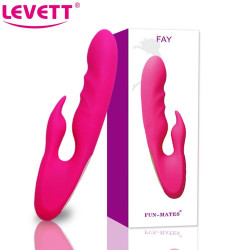
Pornhub Blocks Access in Five More States Over Age Verification Laws
As of July 1, Pornhub will no longer be available in five additional states. This is the reason.
Using a recent blog post, Pornhub announced that it is blocking access in five additional jurisdictions in response to more states passing laws requiring porn sites to confirm a user's age using proof like a driver's license or passport. The giant of adult entertainment has already closed in seven other states—Texas, Arkansas, Mississippi, Montana, North Carolina, Utah, and Virginia—that have almost identical regulations.
The following five states are up for grabs: Kansas, Kentucky, Indiana, Idaho, and Nebraska.
Are age verification laws doing more harm than good?
The Louisiana law requiring age verification, which entered into force on January 1, is comparable to the more recent statutes. "Won't somebody please think of the children!" is a conservative-led moral panic, and these laws are just another wave of it. The vague wording and shoddy execution of age verification laws have raised concerns regarding free speech and privacy, as well as the potential for these laws to be abused to damage vulnerable populations.
Furthermore, it doesn't appear that these regulations are doing anything to prevent youngsters from accessing pornography. Aylo, the parent company of Pornhub, told The Indiana Capitol Chronicle that despite being "one of the few websites" that complied with Louisiana's new law, doing so has had more negative effects than positive ones.
Our traffic in Louisiana has decreased by over 80% since January 1, 2023. "These individuals continued to search for porn," Aylo remarked. "They simply moved to less reputable areas of the Internet that frequently don't even filter content, don't respect the law, don't require users to confirm their age, and don't take user safety seriously. In reality, the regulations have only increased the risks associated with the Internet for both adults and children.
Concerns about privacy are also widespread. People's information is highly vulnerable to fraud and theft since they must provide official identification documents to Pornhub or a third-party verification service.
Furthermore, the actual age verification procedure is not free. Every verification has a cost and with millions of users every day, that adds up quickly.
Pornhub has decided not to operate in states that have age verification laws because of the difficulties. Aylo has suggested device-based identification as a more practical, commonsense step, even if they support keeping children off their website.
The broader implications of age verification laws
Another serious concern with these age verification legislations is their ambiguous wording. Indiana's Bill 17 states that any publicly accessible website that posts anything detrimental to minors may be subject to age verification procedures if at least one-third (1/3) of the photos and videos on the website feature such content.
What, then, is deemed dangerous for children?
IN Code Article 35-49-2-2 (2023) defines "harmful to minors" as:
(1) It characterizes or symbolizes sexual activity, sexual arousal, sadomasochistic abuse, or nudity in any way;
(2) When taken as a whole, it satisfies children's erotic desire for sex;
(3) It is blatantly against the norms of the adult community regarding what constitutes appropriate content for or performance in front of children and
(4) When taken as a whole, it has no significant literary, artistic, political, or scientific significance for young people.
If the phrase "prurient interest" seems familiar, it's because numerous jurisdictions have used it in laws intended to outlaw drag shows and books.
When you combine the words "prurient" with "prevailing standards in the adult community," it's simple to understand how these rules could be abused to harm children who identify as queer.
To effectively restrict websites for organizations like The Trevor Project, a worried parent or any Karen or Chad may advocate for their local authorities to require age verification on websites that offer information for LGBTQIA+ adolescents. Naturally, there is no way to know for sure that this would occur. However, there is ample cause for alarm given the current state of book banning. And it most certainly could, considering how intentionally ambiguous age verification rules are drafted.
Another concerning aspect of the Indiana bill is its provision allowing parents to file a civil lawsuit against a website if their child circumvents the verification process—which is all too simple with VPNs. Therefore, any parent of a tech-savvy child might file a lawsuit against any website that the state determines is subject to the age verification legislation.
Given the privacy issues, ambiguous language, and challenges in implementing these standards, many websites may choose to cease operations in some states rather than risk legal action. It's not insignificant that this could have a chilling impact on free speech.
Even though it's only porn.











































